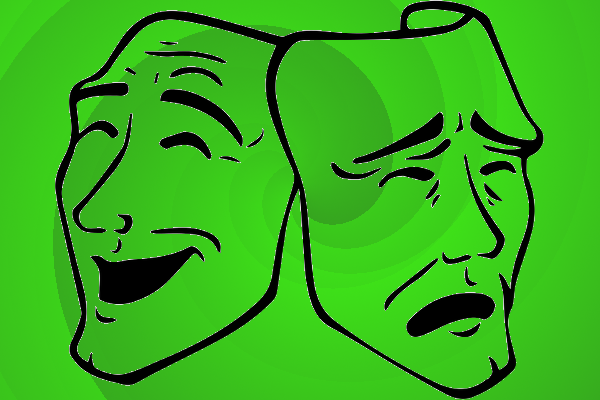
Why We Need Media Cooperativism - Part 2
Read part one here.
There is a really great cop show I neglected to mention in part one: The Wire. During its run it didn’t pick up any awards and suffered from low viewership. Now it is regarded as one of the best shows in television history and partly considered to be responsible for ushering in the modern golden age of TV.
 I don’t disagree with the high praise. The story doesn’t go as far as I’d like when it comes to exploring issues of class in Baltimore (where the series is set) but it does do a pretty good job of exploring the relationship between the police and the black community as well as the failings of the drug war. There’s not enough on police brutality, but it does capture the murkiness of police practice. So, in my estimation, it succeeds more than any other cop show I’ve watched.
I don’t disagree with the high praise. The story doesn’t go as far as I’d like when it comes to exploring issues of class in Baltimore (where the series is set) but it does do a pretty good job of exploring the relationship between the police and the black community as well as the failings of the drug war. There’s not enough on police brutality, but it does capture the murkiness of police practice. So, in my estimation, it succeeds more than any other cop show I’ve watched.
One of the reasons the series succeeds is because of how realistic it feels. This isn’t a mistake. David Simon and Ed Burns, the architects of the show, were both deeply involved in the actual subject matter of the series. Simon was a police reporter, Burns a cop, and both were frustrated with the bureaucracy of law enforcement and the entrenched often corrupt politics of the city.
In order to accurately depict what frustrated them about Baltimore, they did research on top of relying on their experience. What resulted was a series that not only handled police drama well, but also explored community and societal conflict in a way that far exceeds anything else I’ve seen on television.
The key there is research. The series felt true because it borrowed from the truth. No hand-wavey police stuff that barely translated to reality. Instead, we got to witness long and often difficult to follow scenes of police listening in on conversations between drug dealers. We got lots of police paperwork. We got boring meetings between politicians and police chiefs. I took long breaks while watching The Wire, but I never regretted watching an episode. I could smell the paint drying and I found that I loved it.
A lot can be borrowed from The Wire when constructing our own cooperative media culture. For one, we should watch our paint dry. We should get deeply invested in figuring out how to make the most mundane aspects of the leftist movement compelling. We can turn our eyes (and cameras) to meeting rooms and long and difficult debates among activists. We can show the everyday work of members of cooperatives. No gloss. Only substance. The conflict should come out of real issues we face.
We can show the everyday work of members of cooperatives. No gloss. Only substance.
We should also consider all the angles we can approach a story, all the ways we can intersect personal conflict with societal ones. It should feel deeply human, wading waist-deep in the complications of real life. It should attempt to unflatten the positions we take, showing the messiness of being a human while trying to hold onto principles, the missteps while trying to figure out where we stand. The mighty should fall in our narratives. And the spurned should rise. Our villains shouldn’t only be societal systems at large, but the dirt we track in on our feet when we enter our spaces.
It is important to keep in mind that the stories we tell aren’t primarily to convince but to present an accurate picture of lived experience, or as near to it as we can manage. That means as often as we can, we must present narratives that challenge our own conceptions of how media narratives should work. We should push the mediums we use further than they’ve been pushed before. There is a lot of room for art in this (our narratives should be artful and compelling) and room for fun as well (we must make our own comedies after all), but the kinds of stories we tell must offer something that we don’t get in the stories given to us by the mainstream. Our stories must do more.
I use “we” here, but these are just my ideas. Likely, our narratives will and should go beyond what I am talking about. They should definitely contradict me too, if we find that these ideas are inadequate to the task at hand. Ultimately, our media will have to be negotiated. It will encompass far more than what I’m discussing here. We’ll have to discuss what our reality looks like. We will have to disagree with each other’s perceptions of that reality.
As a result, we will produce media that argues with itself, that will serve as a meeting place for all our disparate opinions and ideals, a place for us to do constructive battle with ourselves. That is the way it should be, I think. That’s a very very good thing.
Go to the GEO front page
Citations
Cadwell Turnbull (2018). The Kinds of Stories We Can Tell: Why We Need Media Cooperativism - Part 2. Grassroots Economic Organizing (GEO). https://geo.coop/story/kinds-stories-we-can-tell

Add new comment